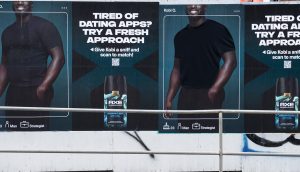Canadians, PepsiCo has found, are nice people who want to improve their country, but often lack the funds to do anything about it. So in order to give these ambitious and generous Canadians a financial leg up, PepsiCo is bringing the ‘Refresh Project,’ aimed at putting money where people’s mouths are, to Canada.
The ‘Refresh Project’ is a social responsibility initiative that will give over $1 million to Canadians with ideas and a solid plan to improve the world around them. The contest will be rolled out in multiple stages, in which applicants submit their ‘shovel-ready’ ideas starting June 1, which are then voted on by the public starting July 1. In the year following, Pepsi will hand out 10 grants every other month to the ideas that get the most votes.
Media on the ‘Refresh Project’ is being handled by OMD, and BBDO Toronto is handling the English creative on the TV spot adapted from the TBWA/Chiat Day-produced US spot. BBDO Montreal is handling the creative for the French spot, also adapted from the US spot.
The project will get its first big publicity boost in Canada this weekend with Pepsi’s sponsorship of the Juno Awards. An ad promoting the ‘Refresh Project’ will debut during the broadcast, during which Pepsi will also hand out its Fan Choice Award.
Also during the event – but not on-air – PepsiCo will corral some of Canada’s most famous musicians into a studio and record their statements on how they would make Canada a better place. Toronto’s Jetstar Group is handling the video, which will then be edited and uploaded to the brand’s social media pages to inspire people into coming up with their own ideas. A separate program has been developed for Quebec by BBDO, with a TV spot debuting next weekend at the Gala Artis entertainment awards. The campaign launched in the US in January.
The media strategy supporting the project is unique for the brand, Dale Hooper, VP marketing, PepsiCo Beverages Canada, tells MiC. Throughout its length, the campaign will consistently mix traditional (TV, on-pack and in-store) media with new media strategies that will be developed and adapted as the project moves forward and Canadians launch their own promotional efforts to garner votes for their ideas.
Neither the creative nor the media strategy is set in stone, but rather the brand will work with the material submitted by Canadians as it comes in. Traditional media will continue to prompt people to vote throughout the campaign, but the digital strategy will be quite fluid, Hooper says.


















